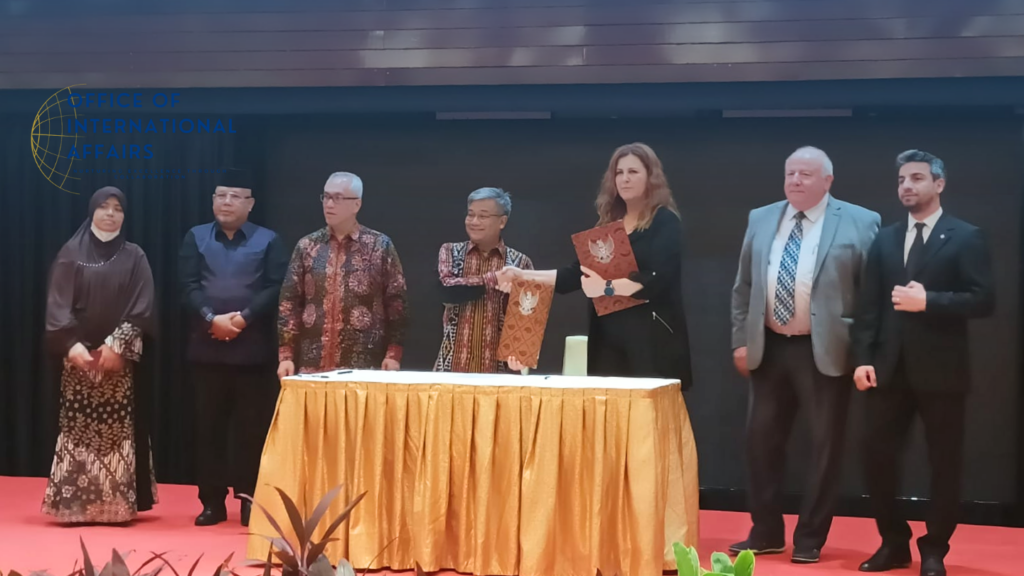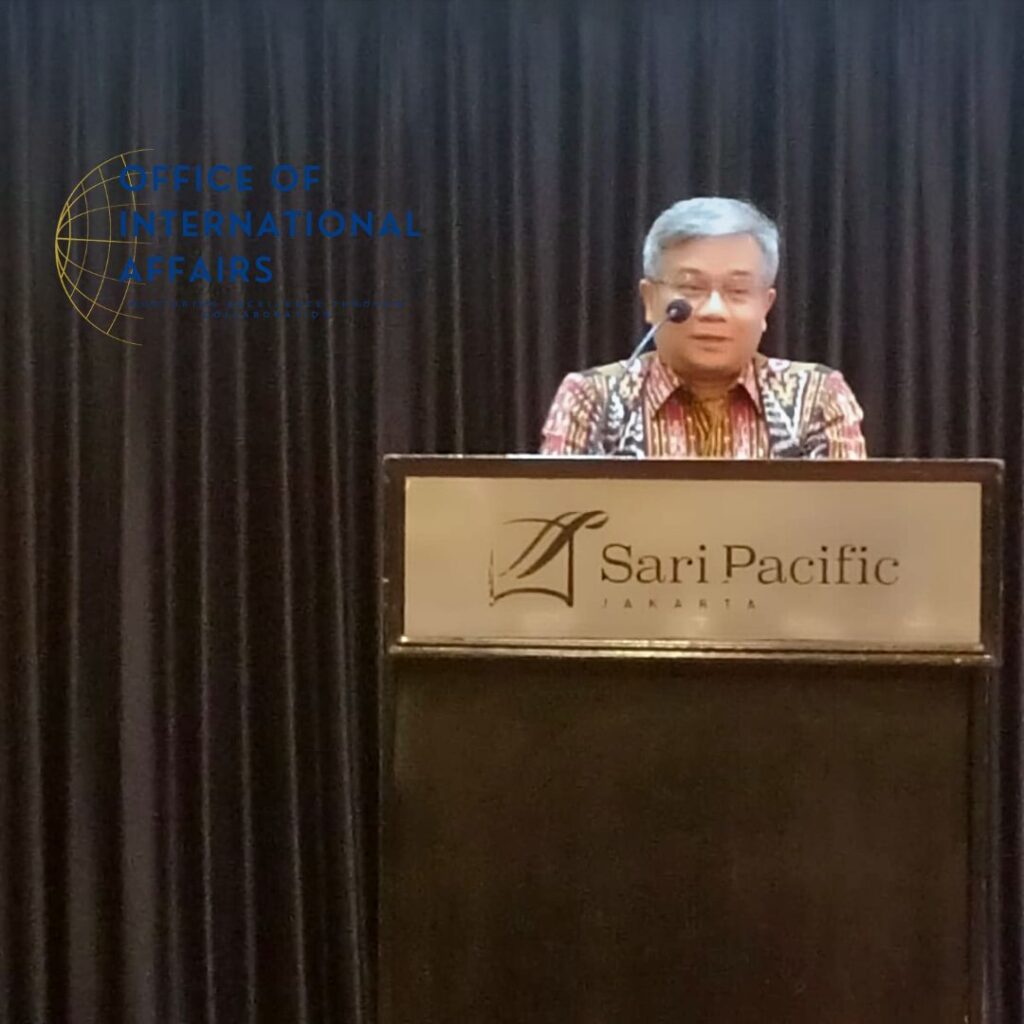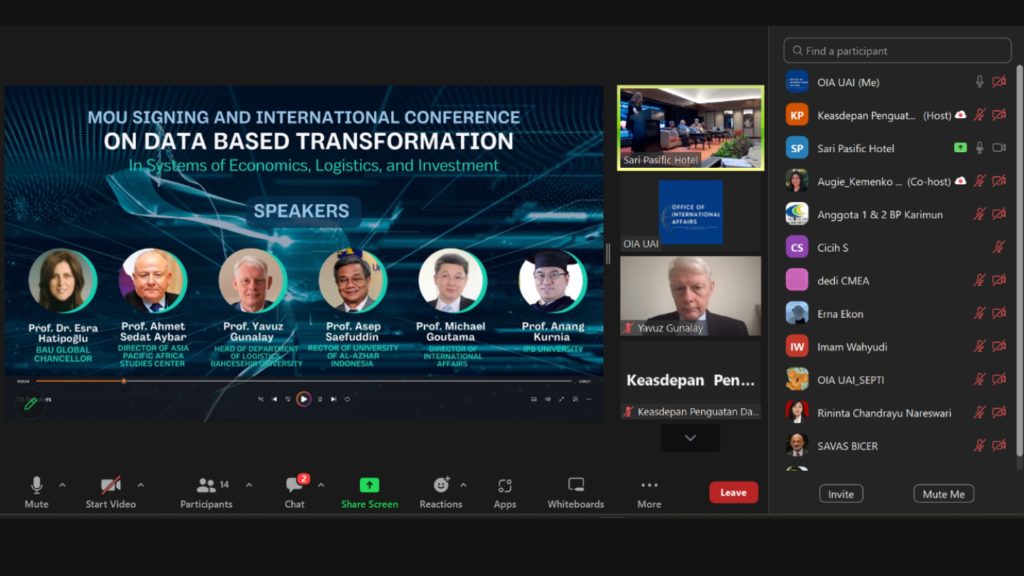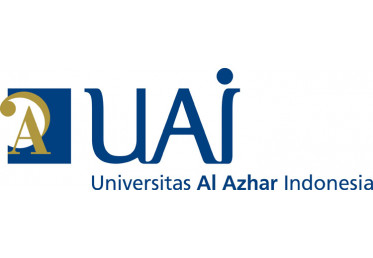Nowadays, data-based policies are crucial as many key aspects in government, and private sectors in relation to the economic development, logistics challenges, human capital, trade, and investment become more data driven. In response to this, the Coordinating Ministry of Economic Affairs of the Republic of Indonesia facilitated an international conference in discussing Data Analytics works in economic and trade aspects in local, regional and global perspectives; Real time data analytics to support industries and policies; and Modelling in economics and trade together with the Memorandum of Signing (MoU) between University Al-Azhar Indonesia (UAI) and Bahçeşehir Üniversitesi (BAU) on Wednesday (23/3) at Sari Pacific Hotel Jakarta. During the event, there were six prominent speakers during the event, Prof. Dr. Ir. Asep Saefuddin, M.Sc. (Rector of UAI), Prof. Michael Goutama (Director of International Affairs), Prof. Dr. Esra Hatipoglu (BAU Global Chancellor), Prof. Ahmet Sedat Aybar (Director of Asia Pacific Studies Centre), Prof. Yavus Gunalay (Head of Department of Logistics of BAU), and Prof. Anang Kurnia (IPB University).
In the opening remarks, the honourable Ms. Kartika Listriana (Deputy Assistant for Strengthening Regional Competitiveness of the Republic of Indonesia) and Mr. Wahyu Utomo (Deputy Coordinating Minister for Economic Affairs of the Republic of Indonesia) who represented H.E Mr. Airlangga Hartarto (Coordinating Minister for Economic Affairs of the Republic of Indonesia) talked about The Roles of Big Data Analytics on Local and Global Economics transformation and development. These past years have been really a hard situation for the world, but Indonesia’s economics’ growth has led to a positive way. This happens because of the role of Big Data Analytics. It is the most suitable one that can keep helping to improve the world and one of the examples is advancing international collaboration. UAI and BAU have taken part to this in developing a world class analytics by supporting and collaborating components including Coordinating Minister for Economic Affairs of the Republic of Indonesia, free trade zones of Bintan, Karimun and Tanjung Pinang and secretariat of these FTZ; and exchange students, teachers, and researchers. Therefore, they really appreciated all involved parties that orchestrated a robust plan to initiate the data-based transformation effort in free trade zones with economic development orientation and together everyone can make policy agile and economic thrive.

On the occasion, Prof. Asep discussed three aspects about Data Analytics Role in Economic, Logistics, and Investment System. These involve the role collaboration as general concept, national data science collaboration, and international data science collaboration. For instance, in economics there is classification of multidimensional using machine learning techniques that can lead to national economic recovery. In investment machine learning also can be applied to capture heterogeneity in free trade agreements, quantify several features of trade agreements, including volume, comprehensiveness, and legal enforceability, and identify the policy provisions that have the most substantial effect in creating trade.
On the other hand, in the environment, the need to understand land-use changes are essential for regional development and land use management towards sustainable development. Markov model and geospatial technology together are able to effectively capture the Spatio-temporal trend in the landscape pattern associated with urbanization in this region. It is his belief that the collaboration which involves data analytics works in economic and trade aspects in local, regional and global perspectives; real time data analytics to support industries and policies; modelling in economics and trade; and supporting PhD and Post-doctoral students in these areas in real and practical perspectives are the answer for improving our economic through data reinforcement.

The conclusion without data is becoming an opinion. Data gives us the foundation of the right conclusion. Many people neglect data, but it actually talks, explains, informs us. Here is the truth, collaboration is very important and the data is the centre.” (Prof. Asep)
Prof. Dr. Esra Hatipoglu (BAU Global Chancellor) said that big data makes an important analysis for strategic decision and policy making. Differentiate with business analysis, its process also insists on mines and transformations. Furthermore, data analytics is not only the analysis process and results, but also all the related things such as discovering insights, patterns, collecting, cleaning, reading, interpreting, and using the current technology inventions.
Prof. Yavuz Gunalay (Head of Department of Logistics of BAU) emphasized the challenges in Global supply chains that are currently facing today in cost competition, higher risks due to supply and connectivity risks, sustainability, and customer. In overcoming it, the method of total quality management (TQM) is needed by applying the deming cycle which means act, plan, check, and do. As a result, he believed that global supply chains are open to several risks, the importance of data, new challenges in data collection, and technology trends in data collection
Prof. Anang Kurnia (The Representative from Institut Pertanian Bogor, IPB University) mentioned Data Analytics Transforming Data into Actions. In his university, statistics and data science have been involved in developing fact-based decision making in government institutions through research and analytics, producing sectoral statistics for local governments in West Java Province, and increasing the capacity of human resources in analytics and data science for commercial sectors. He also attached the data analytics journey from the descriptive, diagnostic, predictive, and prescriptive which has led to them to experience data analytics for Free Trade Zone (FTZ)’s activity.

Hence, Prof. Michael Gautama summed up the insightful conference by formulating that data analytics are encompassing mathematics, machine learning, and hacking of mind. The three things that are needed the most today are leadership, collaboration network model, and parameters in a system. If these things cannot be fulfilled, the academic will lose when the industry revolutionizes and the methodological foundations will be dealing with problems that happen (ethical challenge). “If you have a theory without data, you have nothing. On the other hand, if you have data without a theory that means you have a thing.” Prof. Michael Goutama ended the event.
Attending the ceremony from UAI, Dr. Zirmansyah, M.Pd. (Vice Rector I for Academic Affairs), Ir. Ade Suryanti, M.M. IPU. (Vice Rector II for Resources), Dr. Faisal Hendra, Lc., M.A. (Vice Rector III for Student Affairs and Alumni), Dr. Ir. Ade Jamal (Vice Rector IV for Innovation and Cooperation), Mohamad Ghozali Moenawar, Lc., M.M. (Head of office of International Affairs), Muchammad Nasucha, S.S., M.Si. (Head of the Division of Academic, Research, and Industrial Cooperation), and Dini Priatini, S.KM. (Executive Secretary). (TSH)

